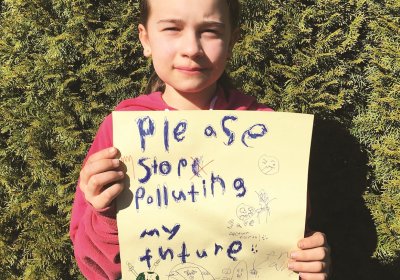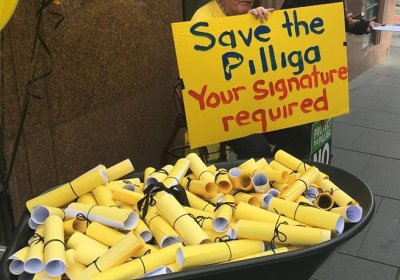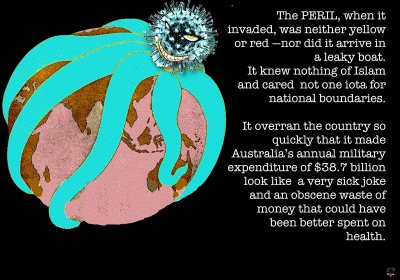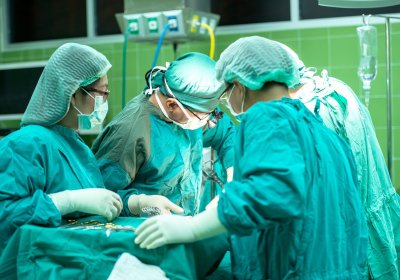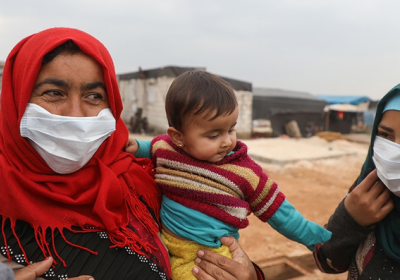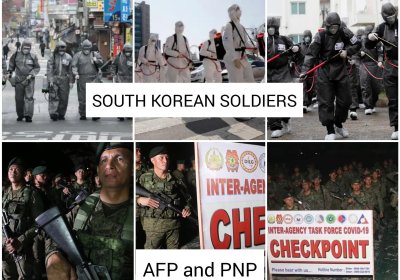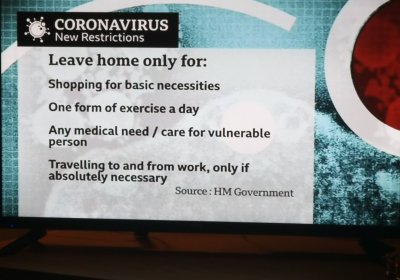Zebedee Parkes reports that around the world climate activists are continuing to hold weekly Friday strikes for climate action — now online.
Issue 1258
News
The fight to stop the state government helping Santos get approval for its Narrabri Gas Project in north-west New South Wales has taken a new twist amid the COVID-19 crisis, reports Kerry Smith.
Jim McIlroy reports unions are angry that Qantas has been handed a hefty bail-out while workers have been left on the scrap heap.
Peace groups want the deployment of United States marines to Darwin to be stopped, arguing there should be no special exceptions during th COVID-19 crisis, reports Kerry Smith.
Analysis
During the COVID-19 pandemic we have all come to realise just how many people have relatively low-paid and insecure work, writes Sam Wainwright.
The COVID-19 crisis has revealed how the profits-first capitalist system fails to look after the needs of ordinary people. Fred Fuentes sketches out five lessons.
Musician Oliver Simpson explains how hard COVID-19 has hit the arts industry, with its workforce largely comprised of freelancers and casual workers.
It might seem unusual to describe climate change as a feminist issue. But it uniquely and unequally affects women and girls in many ways, argues Zita Henderson.
Unions have an opportunity to step up the campaign against casualisation, as more people can see how unfair the system is, argues Sarah Hathway.
Panic buying is a normal response in a dog-eat-dog system that is clearly failing to meet essential needs, argues Sue Bolton.
The government and corporate media are on a concerted push to divide us over who's to blame for the COVID-19 spread, argues Zebedee Parkes.
The Coalition government’s second COVID-19 stimulus package allows workers to draw on their superannuation savings to meet immediate needs. It may sound generous but, as Lisbeth Latham argues, it shifts responsibility onto those already struggling.
Moreland councillor and Socialist Alliance member Sue Bolton speaks to Green Left Radio about the social implications of the COVID-19 outbreak.
Socialist Alliance national convenor Alex Bainbridge speaks to Green Left Radio about the political implications of the COVID-19 pandemic.
Claudia Forsberg writes the COVID-19 pandemic is unleashing anti-social behaviour that is especially impacting on vulnerable people.
Debate over whether schools should be shut down to stop the spread of COVID-19 have focused on many aspects, but not enough on those who are the most likely to be exposed. Teachers union activist Mary Merkenich puts the case to close schools immediately.
Fresh from the bushfire crisis, communities across Australia are being asked — no, instructed — to “look after each other” during the COVID-19 crisis. That would be fine if governments were not making this simple thing so hard to do, argues Pip Hinman.
While many countries have closed schools as a measure to stem the rate of COVID-19 infection, public schools in Australia are to remain open in stark defiance of the “social distancing” requirements of almost every other aspect of social and economic life. Graham Matthews asks why?
World
The coronavirus pandemic has hit the United States hard in the past few weeks. Of reported cases globally so far, the US — with 5% of the world’s population — now has 12% of cases and rising, reports Barry Sheppard.
Flattening the curve and other "mitigation" strategies to battle COVID-19 are dangerous routes for governments to follow, argues Malaysian socialist and doctor Jeyakumar Devaraj.
The people of North and East Syria — a region commonly known as Rojava — are facing increased risk of contracting COVID-19 due to its rapid spread in neighbouring countries, writes Kerry Smith.
The region of Rojava in Northern Syria, which cares for millions of civilians with less money and resources than virtually any other state on the planet, is on the verge of a catastrophe, reports Syrian Democratic Times.
While President Rodrigo Duterte's regime has so far failed to enact an emergency health response to the coronavirus pandemic in the Philippines, social movement activists are providing much-needed practical assistance to communities under threat.
COVID-19 is finally the monster at the door. Researchers are working night and day to characterise the outbreak, but they are faced with huge challenges, writes Mike Davis.
President Rodrigo Duterte’s strong-armed response to the COVID-19 pandemic contrasts with its failure to deliver basic public services, including healthcare, to the people, writes Reihana Mohideen.
With Spain in lock down, Federico Fuentes spoke to Green Left European correspondent Dick Nichols, who is based in Barcelona, about the grim reality on the ground and how, among the sorrow, examples of people’s solidarity are shining through.
Overwhelmed by the coronavirus health emergency, Brazil's far-right, anti-Cuban administration has fallen back on the small nation for medical support— requesting help from the very same Cuban doctors it expelled months ago, writes Ben Norton.
Major threats to public health, living standards and political freedoms underpin Prime Minister Boris Johnson's response to COVID-19, write Neil Faulkner and Phil Hearse.
